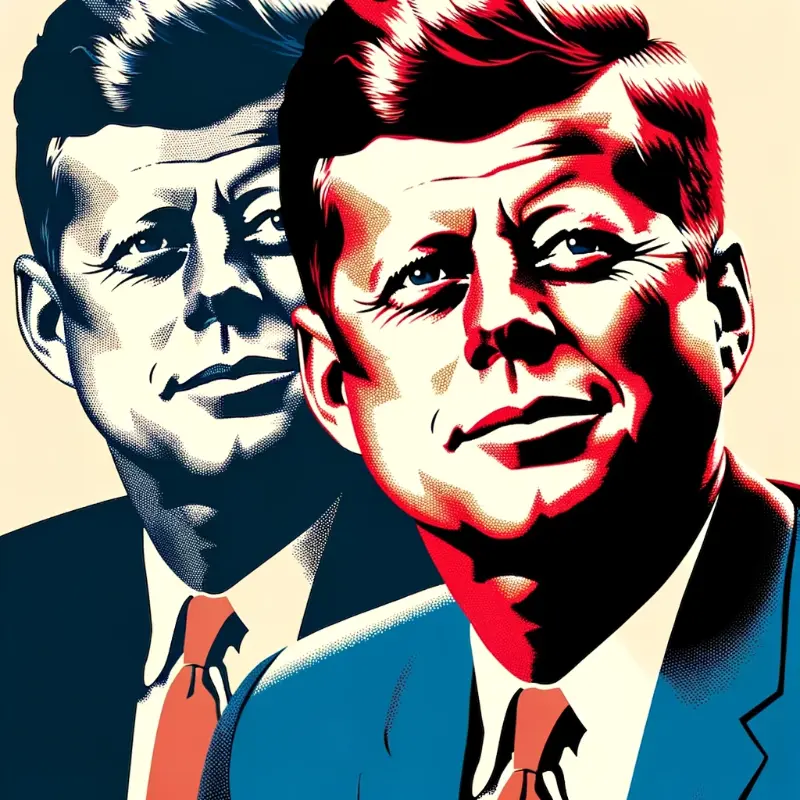20 things JFK did to upset the opposition

Kennedy's presidency was characterized by bold initiatives and a willingness to confront complex and often divisive issues, which naturally led to opposition from various quarters.
JFK Presidency #
John F. Kennedy, as the 35th President of the United States, had a presidency that was marked by high tensions and significant achievements.
Time in Office #
His time in office, from January 1961 until his assassination in November 1963, was filled with actions and policies that were both praised and criticized.
Upsetting the Opposition #
Here are 20 things JFK did that upset the opposition, ranging from domestic policies and civil rights initiatives to foreign affairs and defense strategies:
- Bay of Pigs Invasion
- Kennedy approved the Bay of Pigs Invasion in 1961, an unsuccessful attempt to overthrow Cuban leader Fidel Castro. This was heavily criticized, especially after its failure.
- Cuban Missile Crisis Management
- His handling of the Cuban Missile Crisis in 1962, though ultimately successful in avoiding nuclear war, was initially met with skepticism and fear of provoking the Soviet Union.
- Civil Rights Advocacy
- Kennedy's support for civil rights and his eventual endorsement of civil rights legislation were seen as controversial by many at the time, particularly among Southern politicians.
- Peace Corps Establishment
- The creation of the Peace Corps in 1961 was criticized by some as an idealistic waste of resources.
- Nuclear Test Ban Treaty
- His negotiation of the Partial Nuclear Test Ban Treaty in 1963 with the Soviet Union and the United Kingdom was seen by some as a sign of weakness.
- Space Race Commitment
- Kennedy's commitment to the space race and his goal to land a man on the moon by the end of the 1960s were viewed by some as an expensive and unnecessary rivalry with the Soviet Union.
- Vietnam War Escalation
- Although Kennedy's role in escalating the Vietnam War is debated, his decision to increase the number of American military advisors in Vietnam was controversial.
- Tax Cuts
- His proposal for across-the-board tax cuts, which aimed to stimulate the economy, faced opposition from those who were concerned about the impact on the federal deficit.
- Federal Funding for Education
- Kennedy's push for increased federal funding for education was opposed by those who favored state control over education.
- Alliance for Progress
- His initiation of the Alliance for Progress to foster economic cooperation between the United States and Latin America was criticized by some as an attempt to counteract communism through economic imperialism.
- Immigration Reform Advocacy
- Kennedy's advocacy for immigration reform and the elimination of the national origins quota system faced resistance from those who preferred the status quo.
- Minimum Wage Increase
- His support for raising the minimum wage was opposed by many business interests.
- Health Care for the Elderly
- Kennedy's early efforts to provide health care for the elderly would eventually lead to Medicare, but at the time, it faced significant opposition from the medical profession and conservatives.
- Consumer Protection
- His push for consumer protection legislation, including labeling requirements, was not well received by all industries.
- Cold War Diplomacy
- Kennedy's willingness to engage in diplomacy with the Soviet Union, including the establishment of the Hotline, was seen by some hardliners as appeasement.
- Steel Price Controversy
- Kennedy's public confrontation with the steel industry over price increases in 1962 upset business leaders and was seen as government overreach.
- Flexible Response Military Strategy
- His shift from Eisenhower's "massive retaliation" doctrine to a "flexible response" strategy was criticized by those who saw it as weakening America's military posture.
- Support for West Berlin
- Kennedy's strong support for West Berlin, including his famous "Ich bin ein Berliner" speech, was provocative to the Soviet Union and its allies.
- Environmental Conservation Efforts
- His promotion of environmental conservation and natural resources management was ahead of its time but not universally supported.
- Executive Orders on Equal Employment
- Kennedy's use of executive orders to promote equal employment opportunities and to establish the Committee on Equal Employment Opportunity was seen as bypassing Congress.
Kennedy's presidency was characterized by bold initiatives and a willingness to confront complex and often divisive issues, which naturally led to opposition from various quarters.